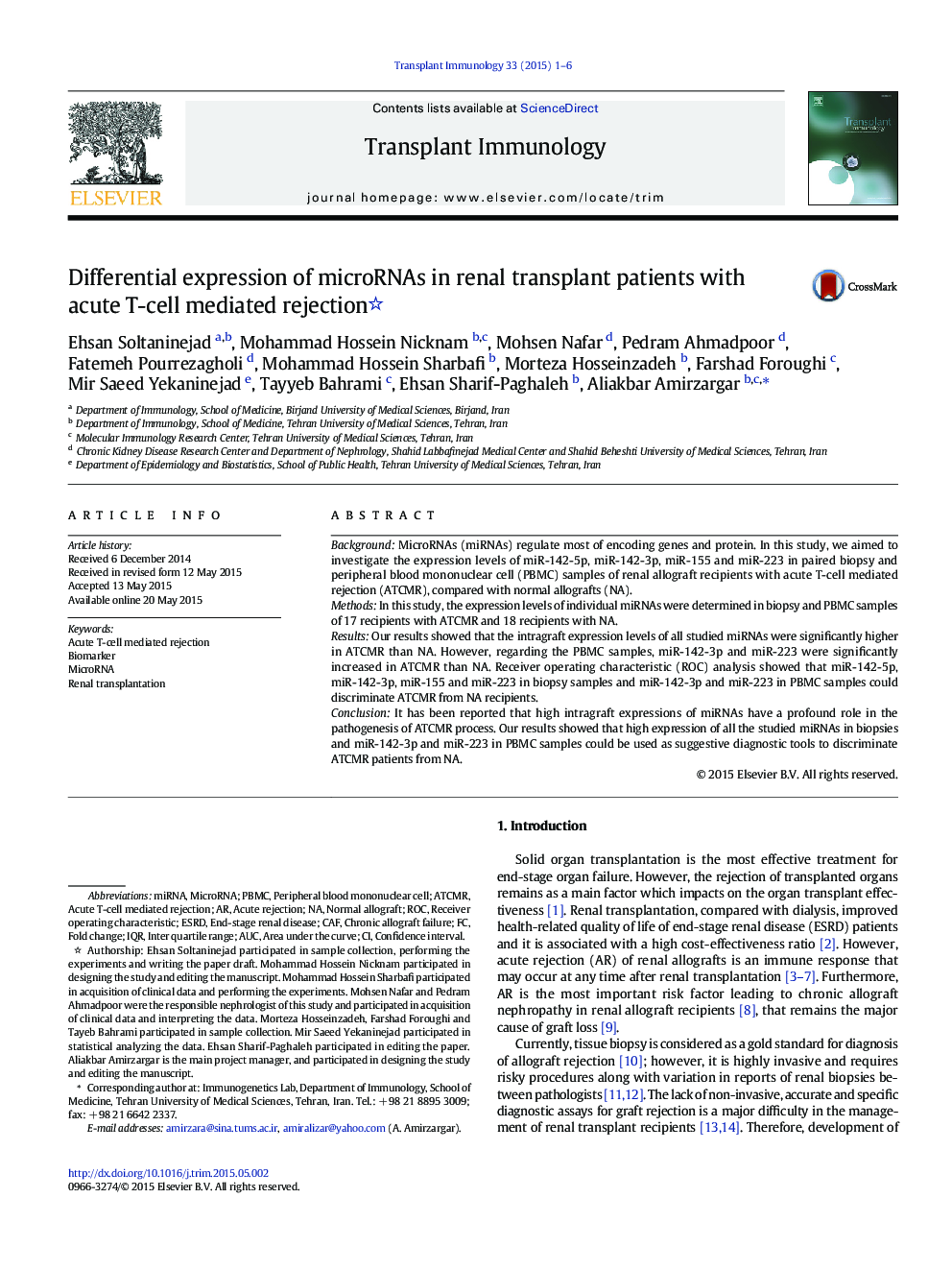| Article ID | Journal | Published Year | Pages | File Type |
|---|---|---|---|---|
| 3392044 | Transplant Immunology | 2015 | 6 Pages |
•We investigated the expression level of miRNAs in acute rejection of renal allografts.•miRNAs were significantly increased in biopsies and PBMCs of acute rejection patients.•miRNAs could be used as diagnostic and predictive biomarker of acute rejection.•miRNAs may have important roles in acute rejection mechanisms.
BackgroundMicroRNAs (miRNAs) regulate most of encoding genes and protein. In this study, we aimed to investigate the expression levels of miR-142-5p, miR-142-3p, miR-155 and miR-223 in paired biopsy and peripheral blood mononuclear cell (PBMC) samples of renal allograft recipients with acute T-cell mediated rejection (ATCMR), compared with normal allografts (NA).MethodsIn this study, the expression levels of individual miRNAs were determined in biopsy and PBMC samples of 17 recipients with ATCMR and 18 recipients with NA.ResultsOur results showed that the intragraft expression levels of all studied miRNAs were significantly higher in ATCMR than NA. However, regarding the PBMC samples, miR-142-3p and miR-223 were significantly increased in ATCMR than NA. Receiver operating characteristic (ROC) analysis showed that miR-142-5p, miR-142-3p, miR-155 and miR-223 in biopsy samples and miR-142-3p and miR-223 in PBMC samples could discriminate ATCMR from NA recipients.ConclusionIt has been reported that high intragraft expressions of miRNAs have a profound role in the pathogenesis of ATCMR process. Our results showed that high expression of all the studied miRNAs in biopsies and miR-142-3p and miR-223 in PBMC samples could be used as suggestive diagnostic tools to discriminate ATCMR patients from NA.
